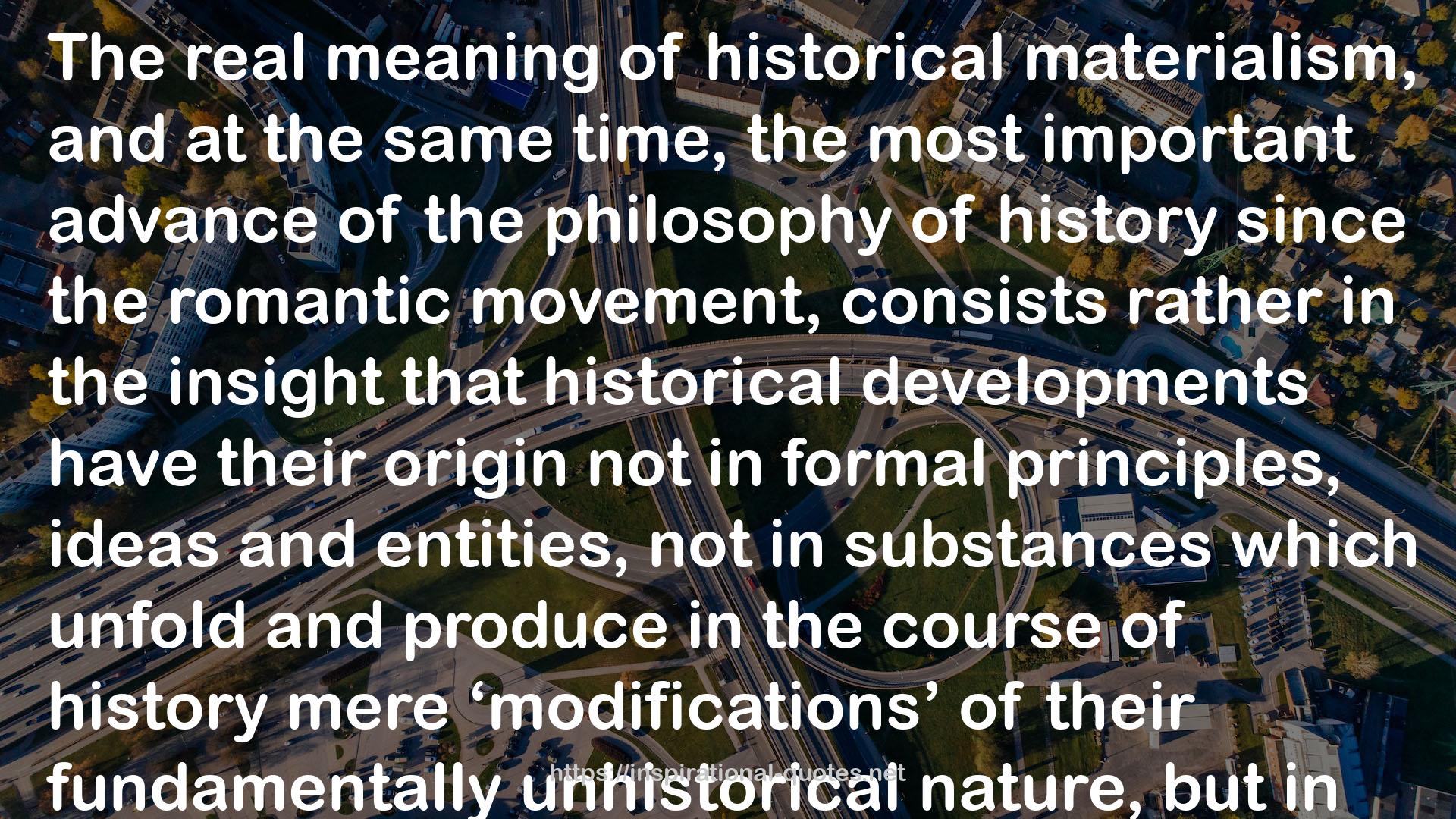" The real meaning of historical materialism, and at the same time, the most important advance of the philosophy of history since the romantic movement, consists rather in the insight that historical developments have their origin not in formal principles, ideas and entities, not in substances which unfold and produce in the course of history mere ‘modifications’ of their fundamentally unhistorical nature, but in the fact that historical development represents a dialectical process, in which every factor is in a state of motion and subject to constant change of meaning, in which there is nothing static, nothing timelessly valid, but also nothing one-sidedly active, and in which all factors, material and intellectual, economic and ideological, are bound up together in a state of indissoluble interdependence, that is to say, that we are not in the least able to go back to any point in time, where a historically definable situation is not already the result of this interaction. Even the most primitive economy is already an organized economy, which does not, however, alter the fact that, in our analysis of it, we must start with the material preconditions, which, in contrast to the forms of intellectual organization, are independent and comprehensible in themselves. "
― Arnold Hauser , The Social History of Art: Volume 3: Rococo, Classicism and Romanticism
